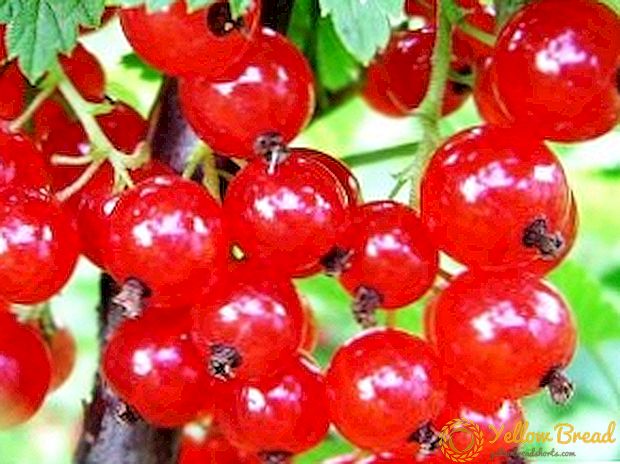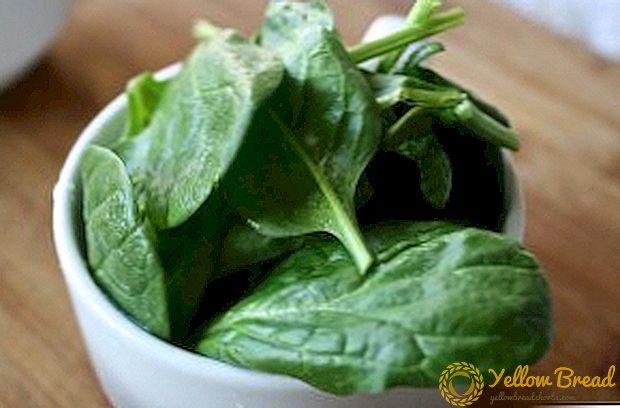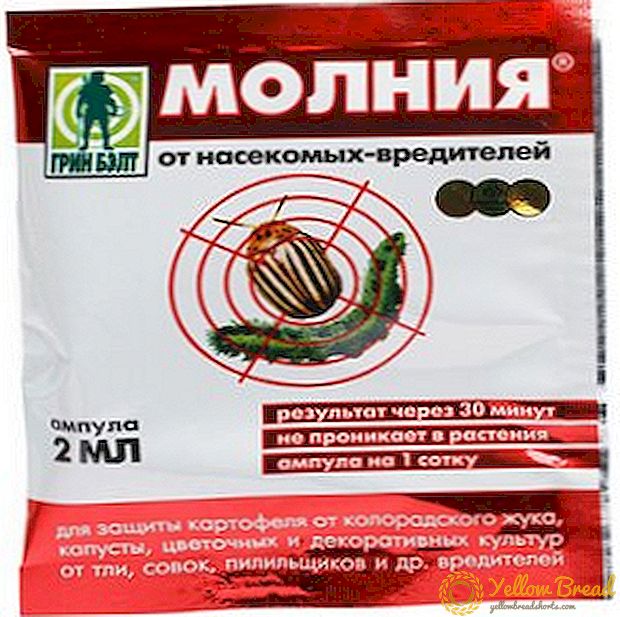 Few people know about the benefits of rose hips, especially about the high concentration of vitamin C in it. However, in addition to the prevention and treatment of colds, rose hips and products based on them have a number of therapeutic properties, as well as contraindications. What exactly, read our material.
Few people know about the benefits of rose hips, especially about the high concentration of vitamin C in it. However, in addition to the prevention and treatment of colds, rose hips and products based on them have a number of therapeutic properties, as well as contraindications. What exactly, read our material.
- Calorie and chemical composition
- Useful properties of wild rose
- Rosehip oil: what is the use and how to cook at home
- Rosehip Tea Brewing Recipes
- Collection and preparation of wild rose for the winter
- Treatment, rehabilitation and health promotion rosehip
- Strengthening the immune system
- Hips help with nervous disorders, depression and insomnia
- Rosehip for the treatment of colds
- Treatment of angina and flu
- For diseases of the oral cavity
- Treatment of sinusitis
- In diseases of the gastrointestinal tract and liver
- To improve potency
- Contraindications and harm
Calorie and chemical composition
The fruits of "wild rose" are very diverse in chemical composition. They contain vitamins (P, PP, C, B1, B2, K, e), and micro- (iron, calcium, magnesium, potassium) and macronutrients (manganese, phosphorus, sodium, copper, molybdenum, zinc, aluminum, selenium and others.), and organic acids (citric, malic, oleic, etc.), and essential oil.
They also contain sugars, glucose, fructose, pectins, flavonoids, tannins, carotenoids.
100 g of dried rosehips do not contain fats, proteins - 3.4 g, carbohydrates - 21.5 g. 100 g of the product - 110 kcal.
Useful properties of wild rose
As you can see, the composition of the wild rose is very diverse, the fruit contains a large number of nutrients. Therefore, the properties that are able to benefit and help the human body fight various diseases are also many.
And not only fruits have medicinal properties, but also flowers, leaves, roots. Fruits are used in traditional medicine, folk healers adopt and other bodies. From rose hips make tea, decoctions, tinctures and infusions, ointments, oil, syrup, wine and liquor.
Rosehip is useful because it is able to provide such actions:
- tonic;
- anti-inflammatory;
- diuretic;
- hemostatic;
- astringent;
- bactericidal;
- capillary strengthening.
Rosehip oil: what is the use and how to cook at home
Rosehip oil is actively used in cosmetology - for the face and hair, as well as in medicine as an antiviral, healing and anti-inflammatory agent. It is able to protect delicate skin from the aggressive influence of external factors, slow down the aging process, give it elasticity, relieve irritations and various kinds of inflammation, maintain water balance.
Oil can be purchased at the pharmacy and cosmetic stores in finished form, and you can make it yourself at home. It is prepared from seeds and from fruits.
It is necessary to take one part of dry fruits and pour them with three parts of vegetable oil. Next, place a container with oil in a water bath and keep it there for an hour. After the oil has cooled, it should be poured into a glass jar and placed in a cool place..
It will be ready for use in two to seven days. Before applying to the face means should be drained.The shelf life of the oil will be three to six months.
Seed oil do this by mixing them with vegetable oil in a ratio of 1:10. You can first insist the oil solution for a week, then boil for 15-20 minutes, cool and insist another six to seven hours. 
- Raw egg yolk mixed with 0.5 tsp of oil. Apply to face before bed for 15-20 minutes. Rinse with running warm water without using soap.
- Grind a tablespoon of oatmeal flakes in a coffee grinder or blender, pour boiling water and insist until swelling. The mixture should be the consistency of thick porridge. Cool mass to 40 degrees and pour half a teaspoon of oil into it. Apply to face for half an hour. If the skin requires lightening, you need to pour a teaspoon of lemon juice.
Rosehip oil also helps to cope with such troubles as dry hair and split ends. It is added to shampoo or balm in the ratio of 1:10.
Rosehip Tea Brewing Recipes
Rose hip tea is advised to drink during colds, because, firstly, it nourishes the body with vitamin C and thus helps it to activate forces to fight the virus, and secondly, it has a diuretic effect, helping to eliminate toxins.
Moreover, with long-term and regular consumption, the drink can lower cholesterol levels, has a preventive effect against heart diseases such as heart attack, stroke. Prevents atherosclerosis. Helps with gastrointestinal problems such as flatulence and diarrhea.
There are several ways to brew rosehip tea - in a kettle and thermos. Most often use the latter - so the drink can better brew, will be more saturated. It is necessary to insist within two hours. In the kettle brew two tablespoons for 10 minutes.  Rosehip can be combined, for example, with ordinary black tea or with karkade. Very tasty, if you insist in a thermos three tablespoons of fruit, one teaspoon of tea, sugar to taste.
Rosehip can be combined, for example, with ordinary black tea or with karkade. Very tasty, if you insist in a thermos three tablespoons of fruit, one teaspoon of tea, sugar to taste.
An indispensable tool for ARVI would be tea from wild rose and dry raspberry (jam). It will be necessary to pour a spoonful of ground fruit and a teaspoon of raspberry in a thermos. Raspberries can be replaced with viburnum, currants. Also rosehip is combined in tea with medicinal herbs: chamomile, melissa, mint.
With a cold, a wild rose fruit drink, infused overnight, helps a lot.
Collection and preparation of wild rose for the winter
Dry raw materials from the "wild rose" can be purchased at the pharmacy, and you can, in the case of a bush home, prepare yourself. Do not forget that the plant has thorns, so you will need to protect your hands with gloves.
Fruit. Fruit harvesting is carried out from August to October (depending on the region of growth).After the first frosts, collecting them is no longer worth it - they will already lose some of the nutrients during this period.
For harvesting suitable orange and dark red berries. It is necessary to pick only hard fruits.
After collecting the fruit must be dried - in the oven or dryer.
They are also subject to drying. They are laid out on paper (fabric) in rooms where fresh air flows well or sunlight does not get in; on the street, under a canopy. Periodically, the leaves are mixed.
After drying, the leaves are better to cut into tea leaves with a length of 4 mm - so it will be easier to brew them. You can also fry them in the oven.
Flowers As a rule, the plant blooms in June, it is at this time that the wild rose flowers are harvested, which also have a number of medicinal properties: anti-inflammatory, soothing. Funds from them have a beneficial effect on the activity of the cardiovascular system, are used for conjunctivitis and blepharitis.They need to be cut with scissors or cut off manually, while leaving a small part of the pedicel. Then the raw material is immediately subject to drying.
Funds from them have a beneficial effect on the activity of the cardiovascular system, are used for conjunctivitis and blepharitis.They need to be cut with scissors or cut off manually, while leaving a small part of the pedicel. Then the raw material is immediately subject to drying.
Roots. Therapeutic properties are present in the lateral root of the hips: bactericidal, anti-inflammatory, astringent. They are harvested at the end of the vegetative period of the plant - in late autumn, or before it begins - in early spring.
Roots neatly cut off from the main rhizome. Then cleaned from earthy lumps and washed. After drying from water, they are cut into small pieces - 1-2 cm. In the future, the pieces are dried, like sheets, on paper or cloth under a canopy or in ventilated rooms, in attics.
You need to store raw materials in cardboard boxes, fabric bags or in glass containers. Shelf life is two years.
Treatment, rehabilitation and health promotion rosehip
Means based on parts of the "wild rose" are used to treat and prevent a wide range of ailments. In addition to influenza and SARS, wild rose is used to establish blood circulation, with stone formation in the kidneys and bladder, problems with blood vessels, heart, urinary system, liver, gastrointestinal tract, oral mucosa.
Apply funds and externally.Ointments - for healing abrasions, eczema, dermatitis, burns. The oil helps breastfeeding women lubricate damaged nipples.
Here are some recipes how to prepare means based on wild rose.
Infusion of the roots. On the infusion of the fruit, we have already written above. The infusion of the roots is prepared from one teaspoon of crushed raw materials and a glass (200 ml) of water. Roots are filled with boiling water and infused in a thermos for 12 hours. Infusion is used as an astringent, for cystitis and intestinal disorders.
Infusion of petals. Two tablespoons of chopped petals placed in 1.5 cups of boiling water. Infuse in a closed container for 30-40 minutes. Before taking, strain. This infusion is perfect for wiping skin. To keep it longer, it is frozen in ice forms and used in the morning toilet of the person.
Dogrose broth cooked as follows. Rosehips in a blender or coffee grinder are ground. Put in boiling water in a ratio of 1:10. Cook one hour under the lid. Then bring the amount of water to its original state and insist 12 hours. Before you drink it, filter.
Below you will find out what other diseases the fetus helps, and read about the indications for its use of wild rose.
Strengthening the immune system
To strengthen the immune system and vitamin deficiency for three months, you should take six tablespoons of powder a day with a glass of water.
Very easy to use and effective rosehip syrup. It is put in tea instead of honey and sugar. Adults - one or two spoons, children (depending on age) - from 0.5 to one spoon.
Hips help with nervous disorders, depression and insomnia
To improve the tone of the body, it is recommended to drink a glass of infusion every morning, 20 minutes before breakfast.
With strong weakness, such a remedy is effective: mix two small (coffee) cups of ground berries, one cup of St. John's wort flowers and yarrow flowers, butter (300 g), honey (600 g). Take throughout the day in an hour, one spoon (dining room).

Rosehip for the treatment of colds
The most effective remedy for ARVI is tea. However, it is also possible to take rosehip powder three times or four times a day in a teaspoon with water in the acute stage of the disease.
Treatment of angina and flu
With the flu, it is good to drink the decoction - one glass every two hours until relief. When angina decoction should be three times a day to gargle.
For diseases of the oral cavity
With stomatitis, rinsing with a decoction is also good. Ulcers should be treated with rosehip oil - so they heal faster.
Treatment of sinusitis
An excellent way to get rid of sinusitis is rosehip oil. It should be a drop of one drop in each nostril up to five times a day. Such instillations will help relieve inflammation, provoke the fastest healing. The tool should not bury children under two years.
In diseases of the gastrointestinal tract and liver
When constipation helps infusion of berries: two tablespoons pour half a liter of boiling water. It is mixed with honey and taken in the morning on an empty stomach until the symptoms disappear.
Brier infusion is taken as a choleretic agent: one-third of a glass is drunk three times a day before meals.
To improve potency
To improve the potency of a strong floor, it is recommended to drink regular rosehip tea regularly.
When premature ejaculation, you can try broth hips with herbs: two tablespoons of ground fruits and motherwort herbs, a tablespoon of calendula and trifoli. Boil in a liter of water. Drink 200 ml before bedtime. Course: three months. Drink the broth continuously for three weeks, then make an interval of a week.
Rosehip for men is useful for such a malaise as prostatitis. To do this, they recommend regular intake of tea from the peel of the fruit: pour a tablespoon with a glass of boiling water and let stand 40 minutes.
 Found application rose hips and in gynecology. With abundant secretions during menstruation, it is advised to use the powder from the berries, which must be diluted in water. Dosage - six spoons per day. It is advisable to begin a course of treatment a few days before the onset of menstruation and continue it for a couple more days after it ends.
Found application rose hips and in gynecology. With abundant secretions during menstruation, it is advised to use the powder from the berries, which must be diluted in water. Dosage - six spoons per day. It is advisable to begin a course of treatment a few days before the onset of menstruation and continue it for a couple more days after it ends.Contraindications and harm
The benefits of rose hips are not subject to doubt, but the use of any means with therapeutic purposes and in the system should be carried out in doses, not uncontrolled. Therefore, before making a decision on the use of wild rose products as an additional therapy, you should consult with your doctor in order to avoid undesirable consequences and harm your body. After all, even excessive consumption of vitamin C is not useful, especially for people who have problems with the gastrointestinal tract (gastritis, ulcer, pancreatitis), as it can cause exacerbation of these diseases.
Not all the cores of the berries of this shrub will be equally useful. For example, with endocarditis to use them is strictly prohibited. People who are prone to high blood pressure, it is better to abandon the use of alcoholic tinctures - they, on the contrary, stimulate the increase in pressure.
With caution and only after the advice of the doctor advised to take infusions and decoctions for those who suffer from cholelithiasis. In the same way, people should behave with the risk of blood clots. You should also not abuse dogrose teas and infusions to children - this is fraught with the destruction of very thin enamel of milk teeth and the removal of necessary potassium from the body.
You should also not abuse dogrose teas and infusions to children - this is fraught with the destruction of very thin enamel of milk teeth and the removal of necessary potassium from the body.
If you do not exceed the recommended doses and consult with experts in time, unwanted reactions can be avoided, and you can get rid of annoying health problems.






